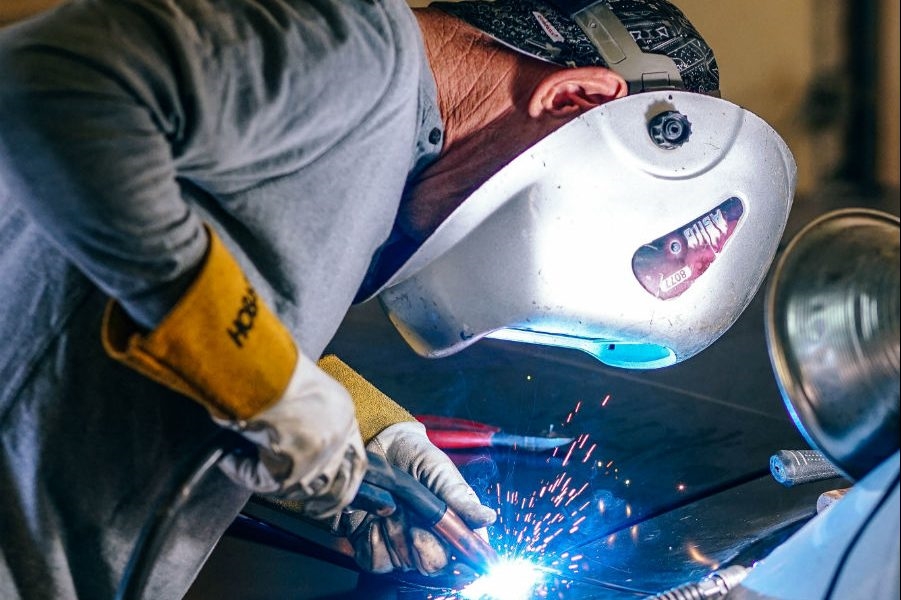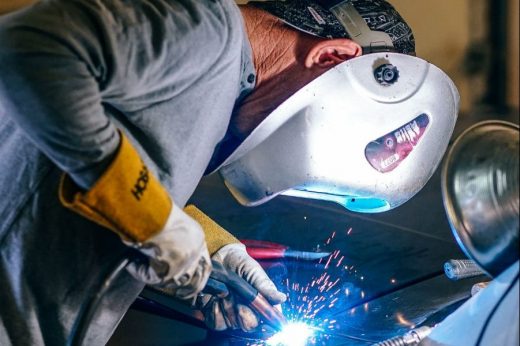Manufacturing Gig Platform FactoryFix Raises $1.5M, Relocates to WI

This year, the state of Wisconsin rolled out a marketing campaign aimed at wooing young professionals from Chicago, claiming the Badger State tends to offer cheaper rents, shorter commutes, and easier access to outdoor activities than the Windy City.
But for FactoryFix CEO and founder Patrick O’Rahilly, whose manufacturing staffing software startup recently relocated its headquarters from Chicago to Madison, WI, the decision to move stemmed in part from his company’s success finding qualified software professionals in Wisconsin—and being able to afford them.
“We’ve had better luck hiring tech talent in Madison” than in Chicago, O’Rahilly says.
The headquarters change also helped FactoryFix secure a new round of venture funding to help fuel its growth. The three-year-old startup recently raised a $1.5 million investment, which O’Rahilly says is a combination of $1 million in equity funding and $500,000 in convertible debt financing. Capital Midwest Fund, a venture firm based in the Milwaukee area, led the round, he says.
Some of FactoryFix’s team was already located in Madison before the investment. But Capital Midwest requested that the startup switch its corporate headquarters from Illinois to Wisconsin in order to make its investors eligible to receive a 25 percent state income tax credit available through Wisconsin’s Qualified New Business Venture program, says Capital Midwest general partner Dan Einhorn. (FactoryFix plans to maintain a Chicago office, where its sales team is based, O’Rahilly says.)
FactoryFix’s new funding round is also notable because it’s the first deal to materialize from meetings of the Wisconsin Investment Syndication Committee, Einhorn says. His firm led the creation of the committee in 2016 to foster more conversations between local venture capital firms, corporate venture arms, angel investors, and other organizations that support startups. Part of the idea behind forming the committee is that these interactions might lead the parties involved to make joint investments in startups, Einhorn says. Other investors joining Capital Midwest in the $1.5 million deal included Madison-based Lancaster Investments and wealthy individuals, some of whom are executives at manufacturing companies, O’Rahilly says.
FactoryFix plans to use some of the new money to hire more employees. By early 2019, the startup plans to add additional engineers, a user interface designer, and someone to oversee marketing, O’Rahilly says. His goal is to double FactoryFix’s headcount, bringing it to 26 employees in the next year.
The startup’s Web-based software platform connects manufacturing businesses with skilled workers, a category that encompasses electricians, machinists, robot programmers, welders, and other specialists. FactoryFix designed its software to help employers fill their short-term staffing needs, though temporary assignments can sometimes lead to full-time job offers.
FactoryFix makes money by charging commissions on the hourly wages of laborers who accept job assignments from manufacturers. Its business model is similar to a traditional staffing agency in that it’s FactoryFix, not the employer, that handles most of the paperwork and pays workers.
About 350 manufacturing companies and 1,200 skilled workers have signed up to use FactoryFix’s service, O’Rahilly says.
FactoryFix had forged connections in Wisconsin before moving its headquarters there. Several manufacturers in southeastern Wisconsin have used the company’s tools to find people to work on projects, O’Rahilly says.
Last year, FactoryFix participated in a 12-week startup accelerator program in Milwaukee organized by Wisconsin-based Gener8tor. O’Rahilly, who does not have a background in software development, says one reason FactoryFix went through the program was to get help finding a chief technology officer. The person FactoryFix hired for the job was Tim Nott, who previously co-founded MobileIgniter before that Madison-based company shut down in 2016. O’Rahilly says his startup found several of the people it ended up hiring in Madison through Gener8tor’s network and Nott’s personal connections.
FactoryFix is now among the companies working from StartingBlock Madison, a new hub for entrepreneurs located just east of the city’s downtown.
The startup’s goal is to do $4 million in sales in 2019, O’Rahilly says. A more near-term milestone is releasing a mobile version of FactoryFix’s platform, which O’Rahilly says he expects will happen later this month.
(41)


